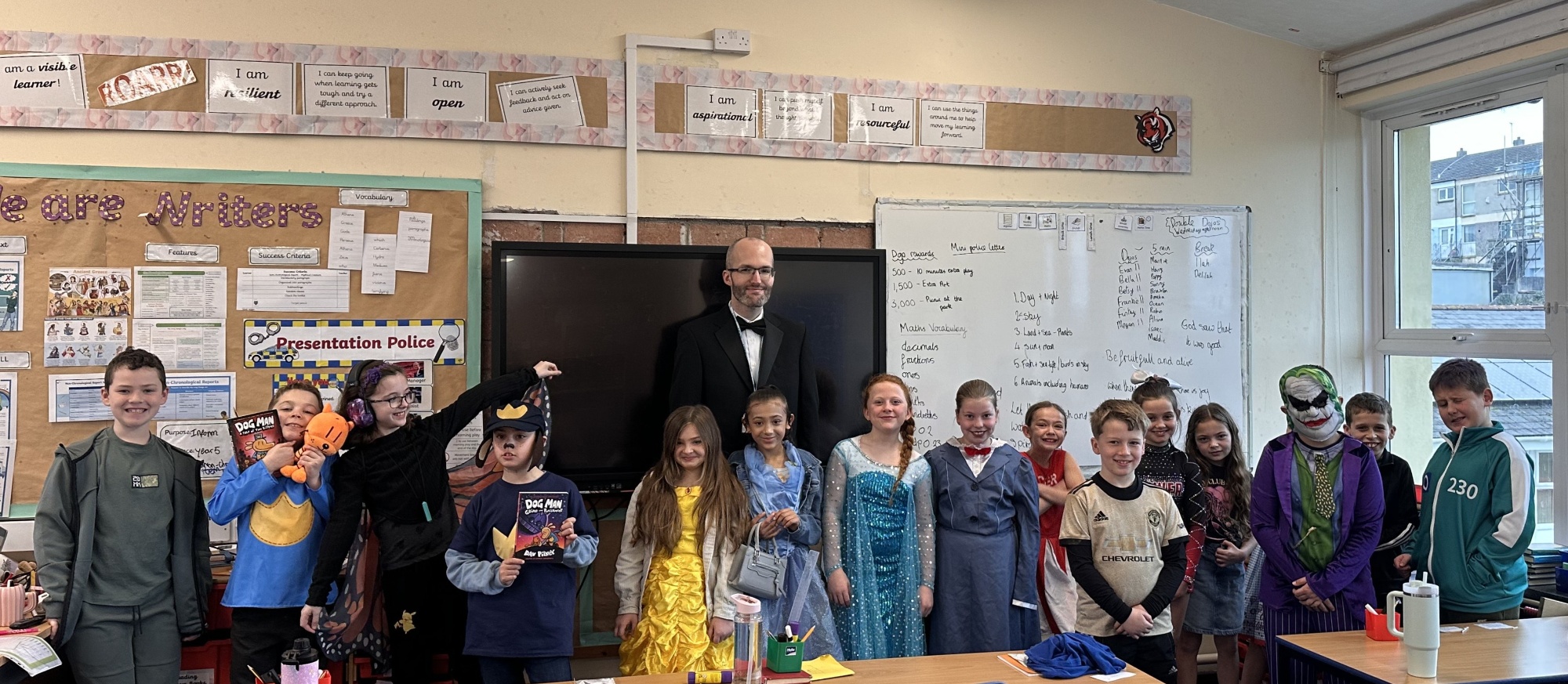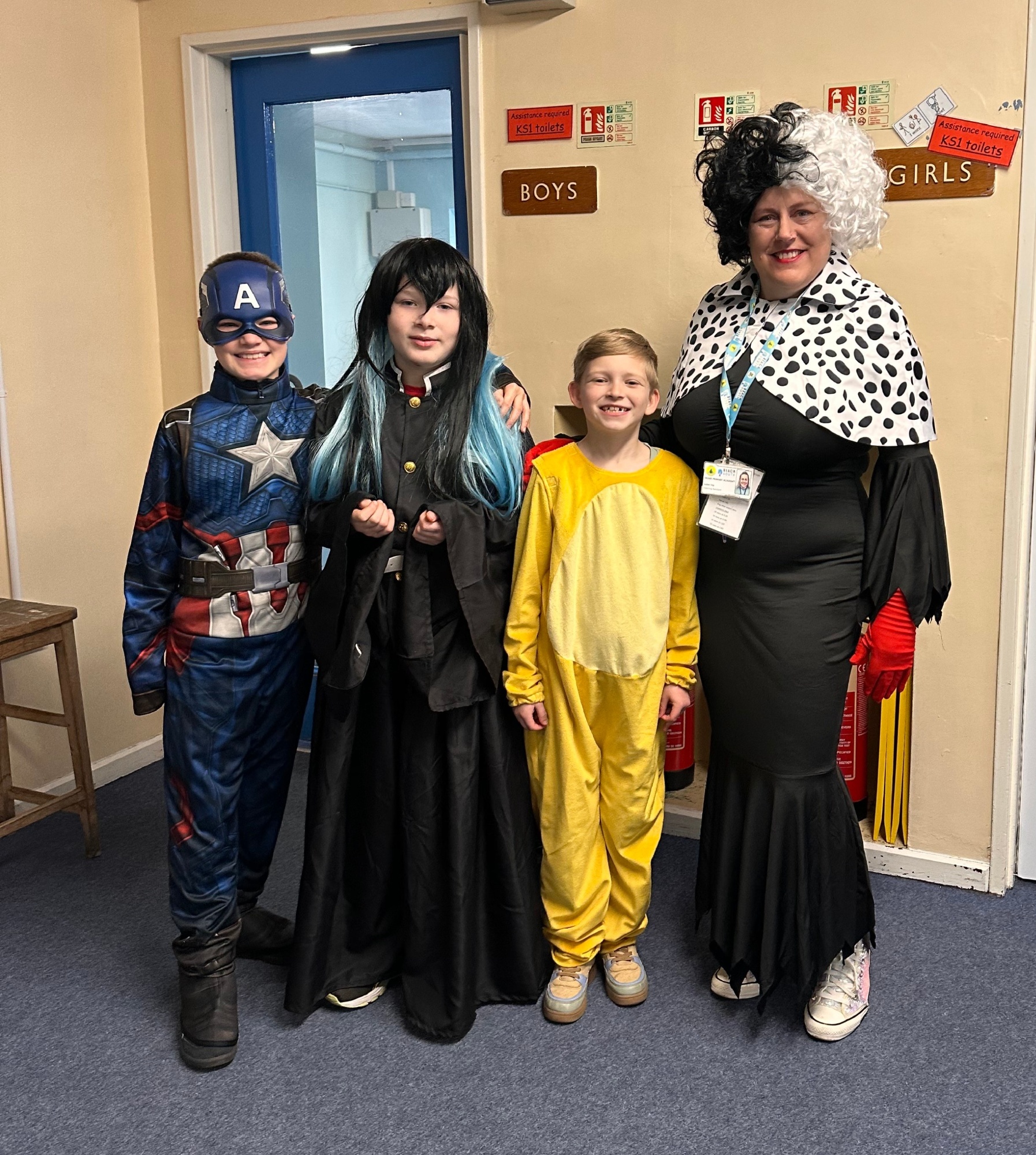Curriculum
World Book Day 2025
We celebrated World Book Day with guest readers story telling in EYFS and KS1 from Babcock, an online reading workshop with Michael Rosen earlier in the week and such a wide variety of amazing costumes.
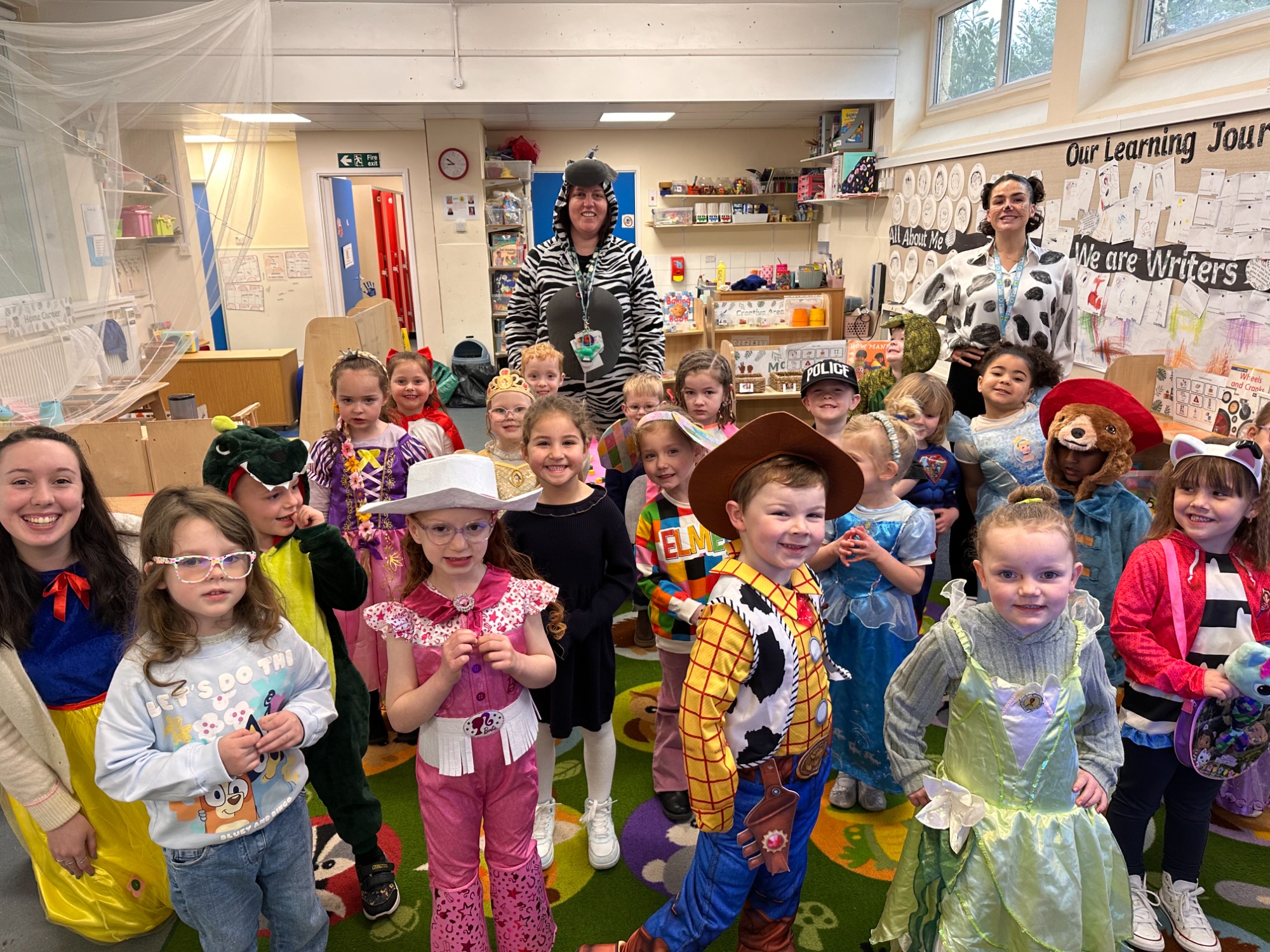
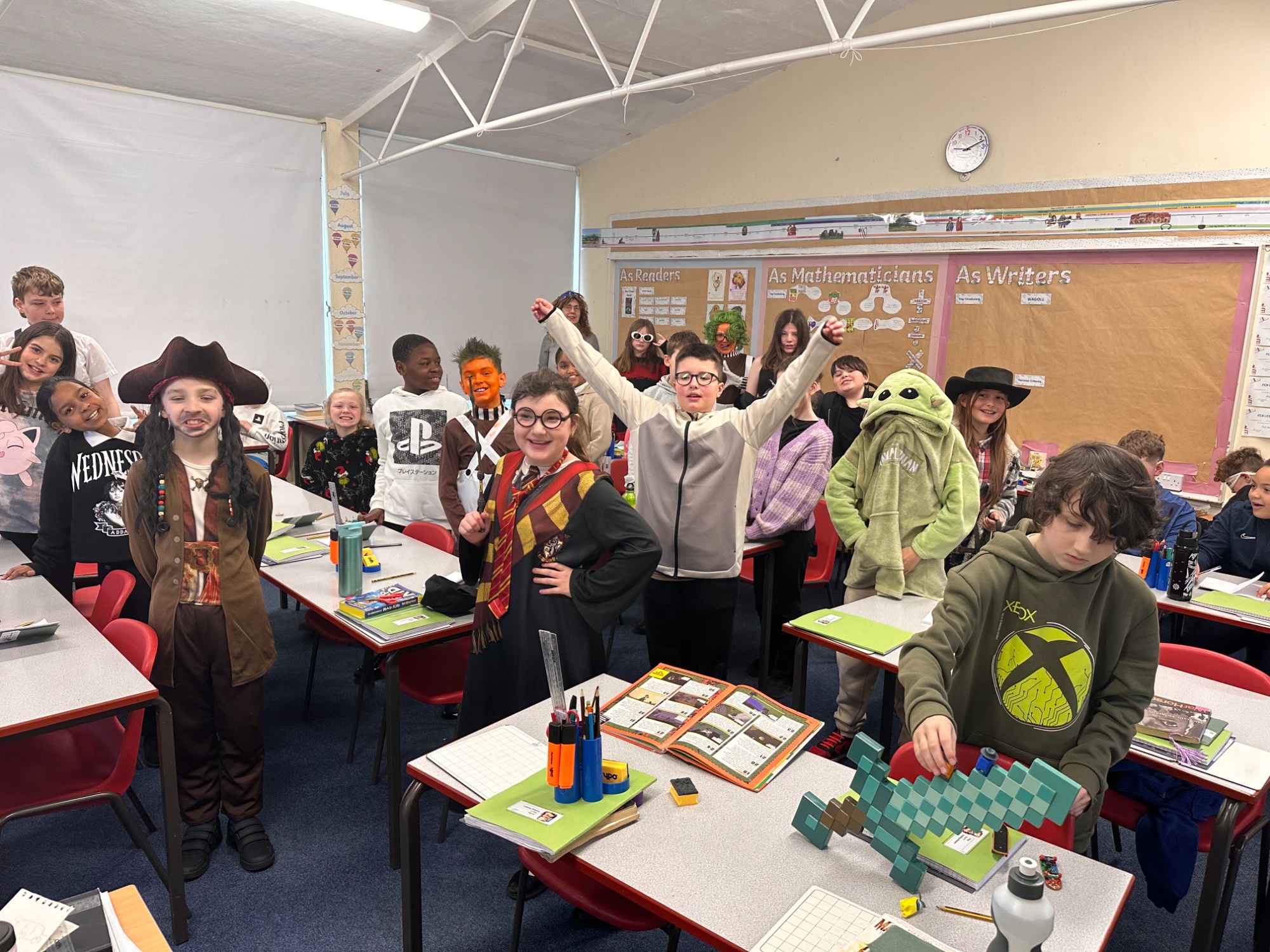
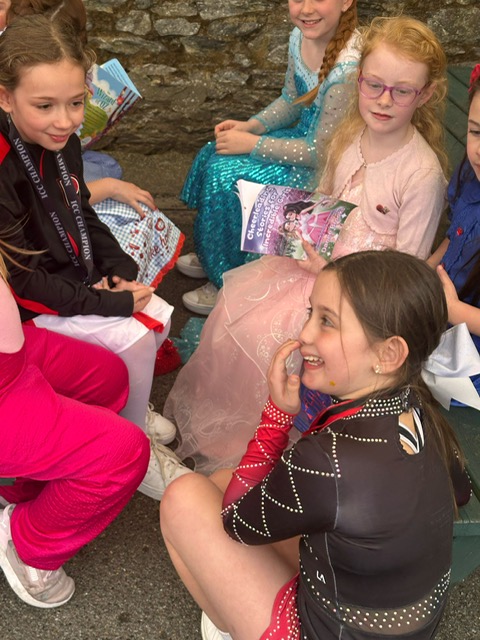
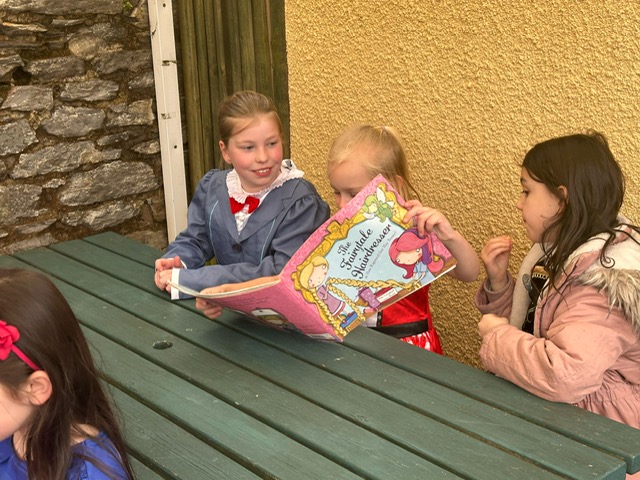
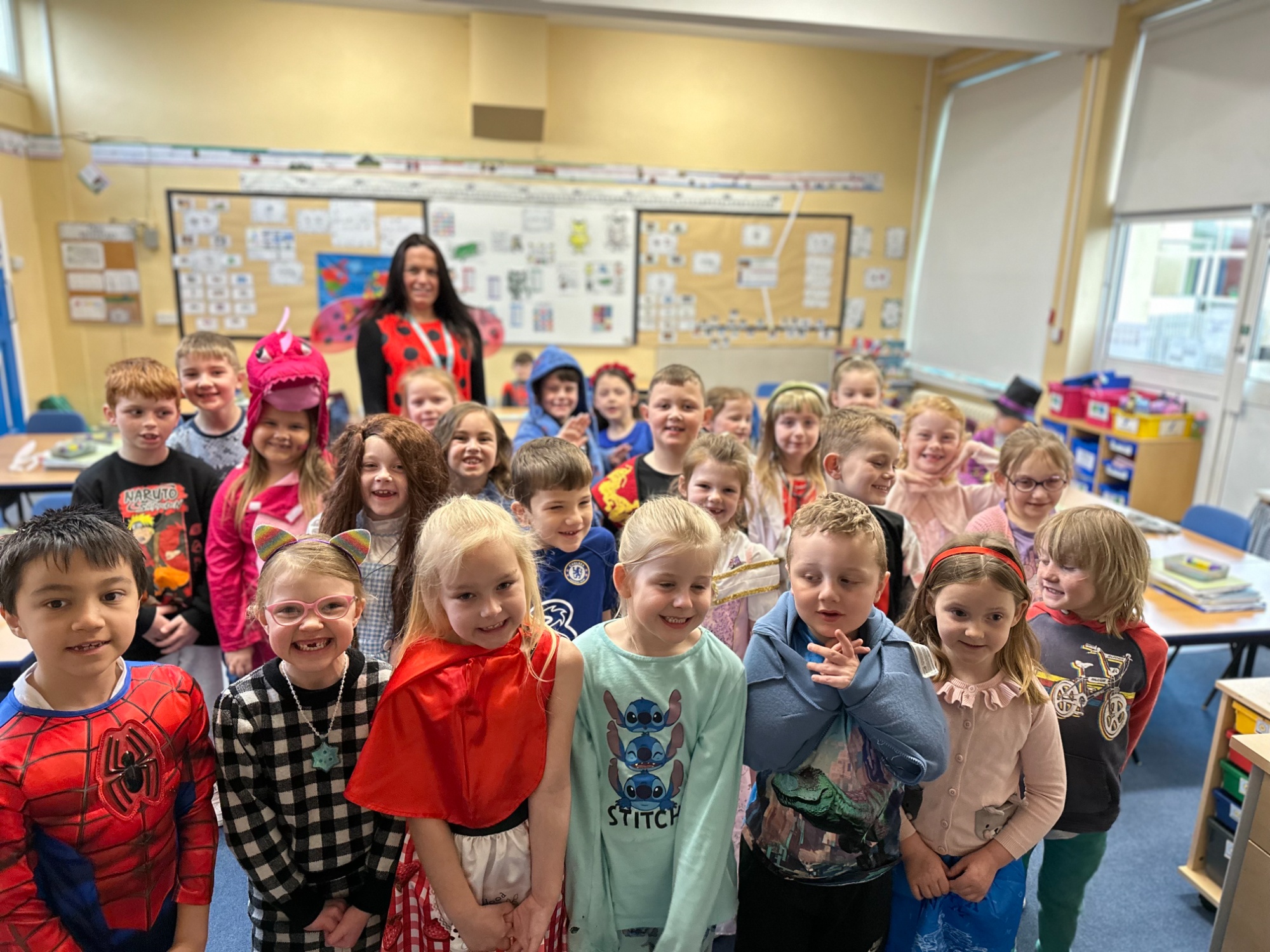
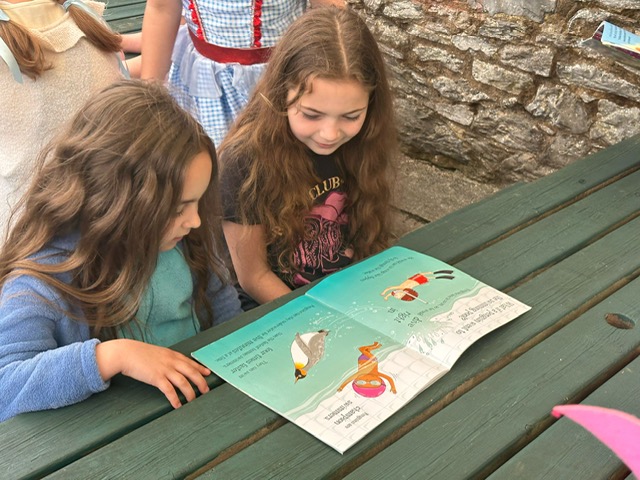
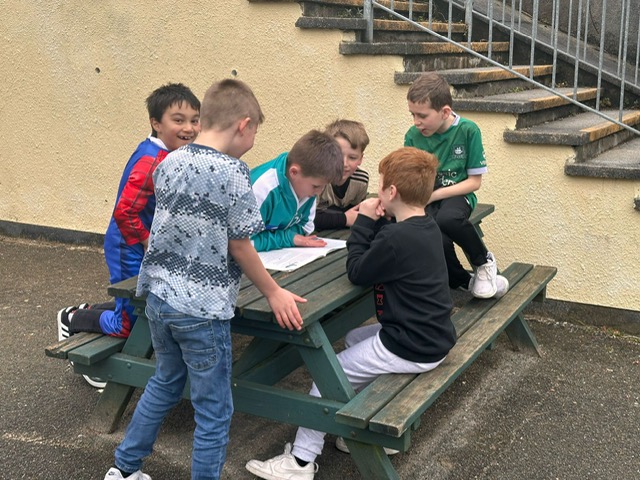
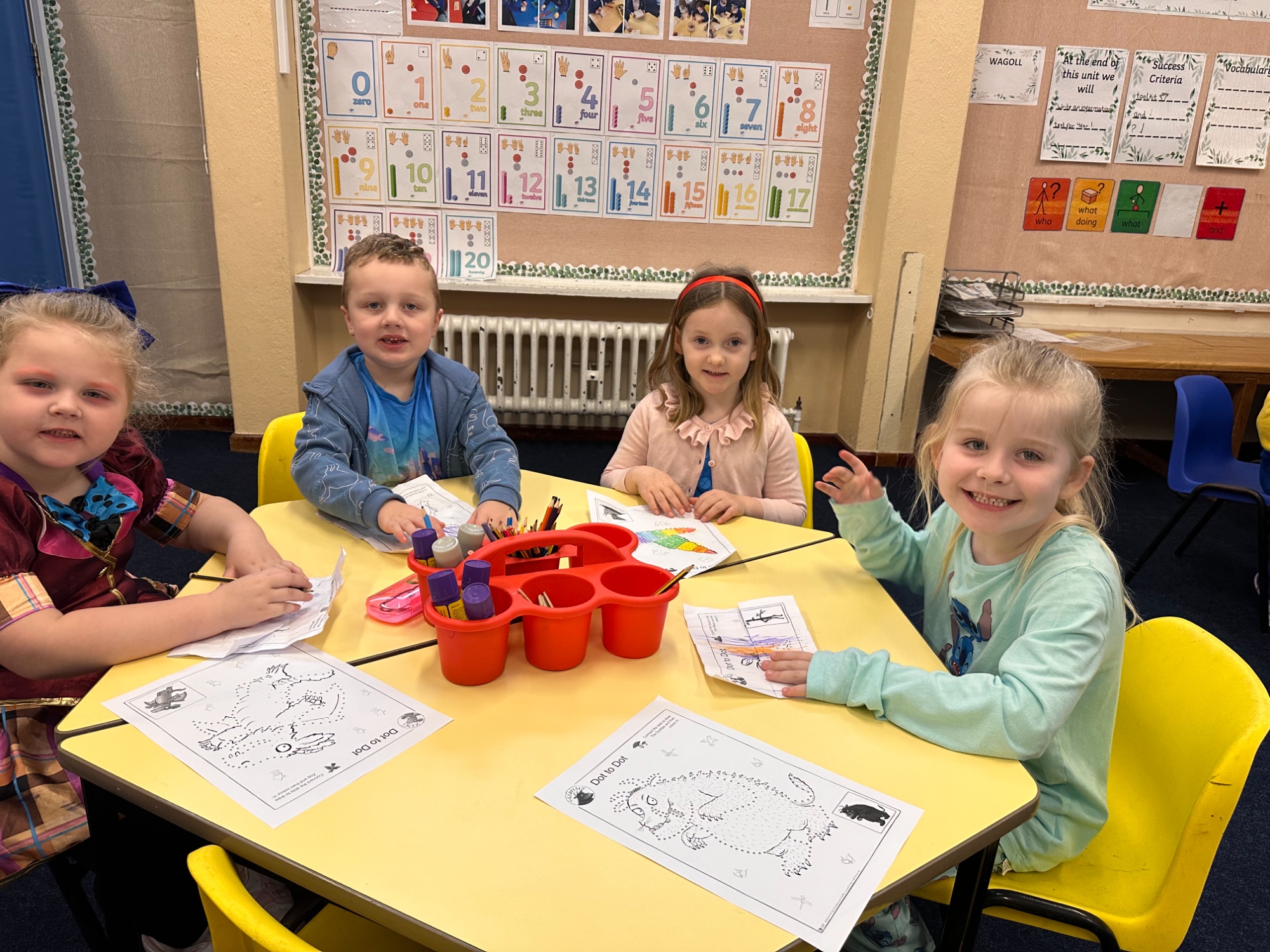
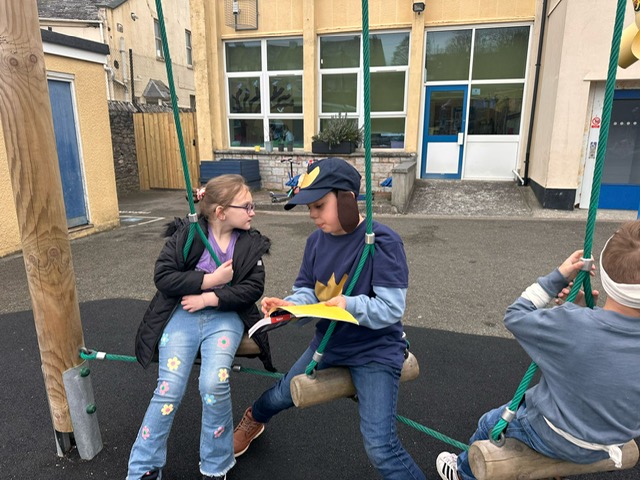
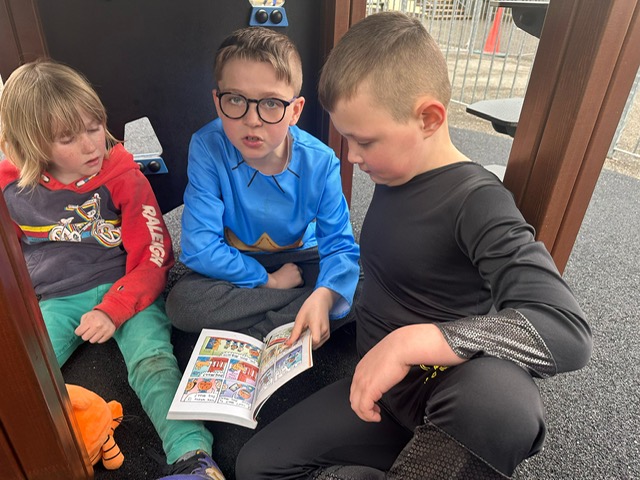
Drake & Morice Town Primary Academies’ Curriculum
The School has continued to refine and adapt our exciting curriculum working in partnership with Morice Town Primary School. We feel this will provide the children with a sense of purpose and place behind their learning and will offer many more opportunities for the children to apply knowledge and skills in a range of formats. More detail on the curriculum intent, implementation and impact and the topic overview for each year group can be downloaded below.
We aim to ensure our curriculum is broad and balanced, providing our children with purposeful and meaningful learning activities. Our curriculum is underpinned by the National Curriculum (2014), we enhance this by providing a range of additional activities, including visits or visitors, giving children some first-hand experience that helps to develop the individual school curriculum. We strive to build thematic learning opportunities where commonality exists between subjects and aspects. Learning is linked and lessons are taught using a cross-curricular approach. Where this is not achievable, subjects are taught discretely.
We place a strong emphasis on the development of the basic skills necessary to be confident independent learners and successful adults. When children start school they follow the Early Years Foundation Stage, EYFS, curriculum. This is a play based curriculum which details the learning and provision for children from birth to five. EYFS defines what is to be taught in the prime and specific areas. The prime areas include communication and language, physical development, and personal social and emotional development. The specific areas are literacy, mathematics understanding the world, and art and design.
Children rapidly begin to learn their sounds (phonics)through daily lessons following the Read Write Inc phonic program. Children develop good reading skills and are well supported through the provision of a rich diet of reading materials. The backbone of this is provided by ‘real world’ books but this is enhanced by arange of other published schemes such as Heinemann. The school invests a great deal of time in reading through the daily Reading Masters sessions. This focuses on the teaching of the reading domains, of fact retrieval, inference, comparison, vocabulary, opinion forming developing comprehension and deductive skills.
All children engage in a daily literacy lesson where they develop their writing and grammar skills, in addition to developing a command of the other all aspects of the English language. To aid their creative writing, the school uses a ‘Talk for Writing’ approach pioneered by the author Pie Corbett. Children learn to write stories and creative pieces through imitating other authors’ work, moving onto innovating by adding in their own ideas. Story maps, plans and boxing up stories allow children to develop their writing in stages ensuring there is quality to their finished pieces.
The daily maths lessons develop children’s mathematical knowledge through the mastery approach. Much attention is paid to the rapid recall of facts, multiplication tables and practice of calculation methods. These are practiced regularly in the power up parts of the maths lesson. The school follows national guidelines on the teaching of standard written methods of calculation for addition, subtraction, multiplication and division. Shape, space, measurement and statistics are also taught as part of the mathematics curriculum. Opportunities are given for the children to apply their mathematical skills and reasoning through problem solving and investigation actives.
The national curriculum details the content and knowledge to be taught for science, history, geography, art, music, design and technology, physical education, computing and a modern foreign language (French) in Key stage 2. Religious Education is delivered through the Plymouth/Devon locally agreed syllabus. Details of the RE syllabus can be downloaded below.
The national curriculum details the content and knowledge to be taught for science, history, geography, art, music, design and technology, physical education, computing and a modern foreign language (French) in Key stage 2. Religious Education is delivered through the Plymouth/Devon locally agreed syllabus. Details of the RE syllabus can be downloaded below.
Beyond the statutory national curriculum, developing children’s life skills is an important part of what is taught at our school. These skills include teaching the children to be independent, be able to collaborate with others, have good communication skills, be creative, think critically and stay well. The personal, social & health education, (PSHE), curriculum is delivered through the Jigsaw scheme. This develops a strong sense of moral purpose in addition to a respect and understanding of people who have different characteristics to themselves, whether that be age, disability, gender, race or sexuality.
A synopsis of each year group's curriculum studies for your child’s individual year group is available on the website Year Group Pages.
More details on the national curriculum are available at: https://www.gov.uk/national-curriculum/overview
More details on the EYFS are available at: https://www.gov.uk/government/publications/changes-to-the-early-years-foundation-stage-eyfs-framework

